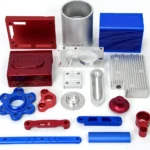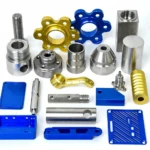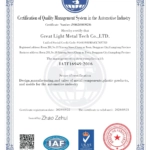The world of CNC machining is a fascinating field that requires a high level of precision, skill and attention to detail. As an important part of modern manufacturing, CNC machining professionals play a crucial role in creating complex parts and components for a variety of industries including aerospace, automotive, medical, and more. If you are considering a career in CNC machining or interested in learning more about the field, one of the most important aspects to consider is the salary range for CNC machining professionals.
CNC processing wages may vary by position, experience, and specific position. On average, entry-level CNC machining positions start at around $40,000 per year, while experienced professionals can earn over $80,000 or more. For example, a CNC mechanic with 5-10 years of experience pays an average annual salary of about $60,000 to $70,000, while a senior CNC mechanic or team leader earns $90,000 per year.
It is also worth noting that salary may vary by industry and company. For example, CNC mechanics working in the aerospace industry may receive higher salaries than CNC mechanics working in other industries. Additionally, companies that require highly professional or complex parts may offer higher salaries to attract and retain top talent.
In positions, some common CNC processing positions and their corresponding salary ranges include:
* CNC Mechanic: $40,000-$60,000 per year
*Senior CNC Mechanic: $60,000-$80,000 per year
* CNC Team Leader: $80,000-$100,000 per year
* CNC Manufacturing Engineer: $90,000-$120,000 per year
To become a successful CNC mechanic, it is often necessary to have a combination of education, training and experience. Many CNC mechanics start with certificates or degrees in related fields such as processing or manufacturing and then gain hands-on experience through apprenticeship or on-the-job training.
In addition to technical skills, CNC mechanics must also have strong problem-solving skills, attention to detail and the ability to work well under pressure. As manufacturing continues to grow and becomes more automated, the demand for skilled CNC mechanics may remain high.
In short, CNC processing wages may vary by a range of factors, including experience, industry, and position. But with the right combination of education, training and experience, CNC mechanics can enjoy meaningful and challenging careers with competitive salary and promotion opportunities.
FAQ:
Q: What is the average salary of a CNC mechanic?
A: Based on experience and industry, the average salary of a CNC mechanic ranges from $40,000 to $80,000 per year.
Q: What is the difference between a CNC mechanic and a CNC manufacturing engineer?
A: CNC mechanics are responsible for operating and maintaining CNC machines, while CNC manufacturing engineers are responsible for designing and optimizing manufacturing processes and systems.
Q: Do I need a degree to become a CNC mechanic?
A: While a degree is not always required, many CNC mechanics start using certificates or degrees in related fields, such as processing or manufacturing, and then gain practical experience through apprenticeship or on-the-job training.
Q: Which industries hire CNC mechanics?
A: CNC mechanics are employed by many industries, including aerospace, automotive, medical, etc.
Q: How do I start my career with CNC machining?
A: To get started, consider pursuing a certificate or degree in the relevant field and then look for apprenticeship or on-the-job training for hands-on experience.



















